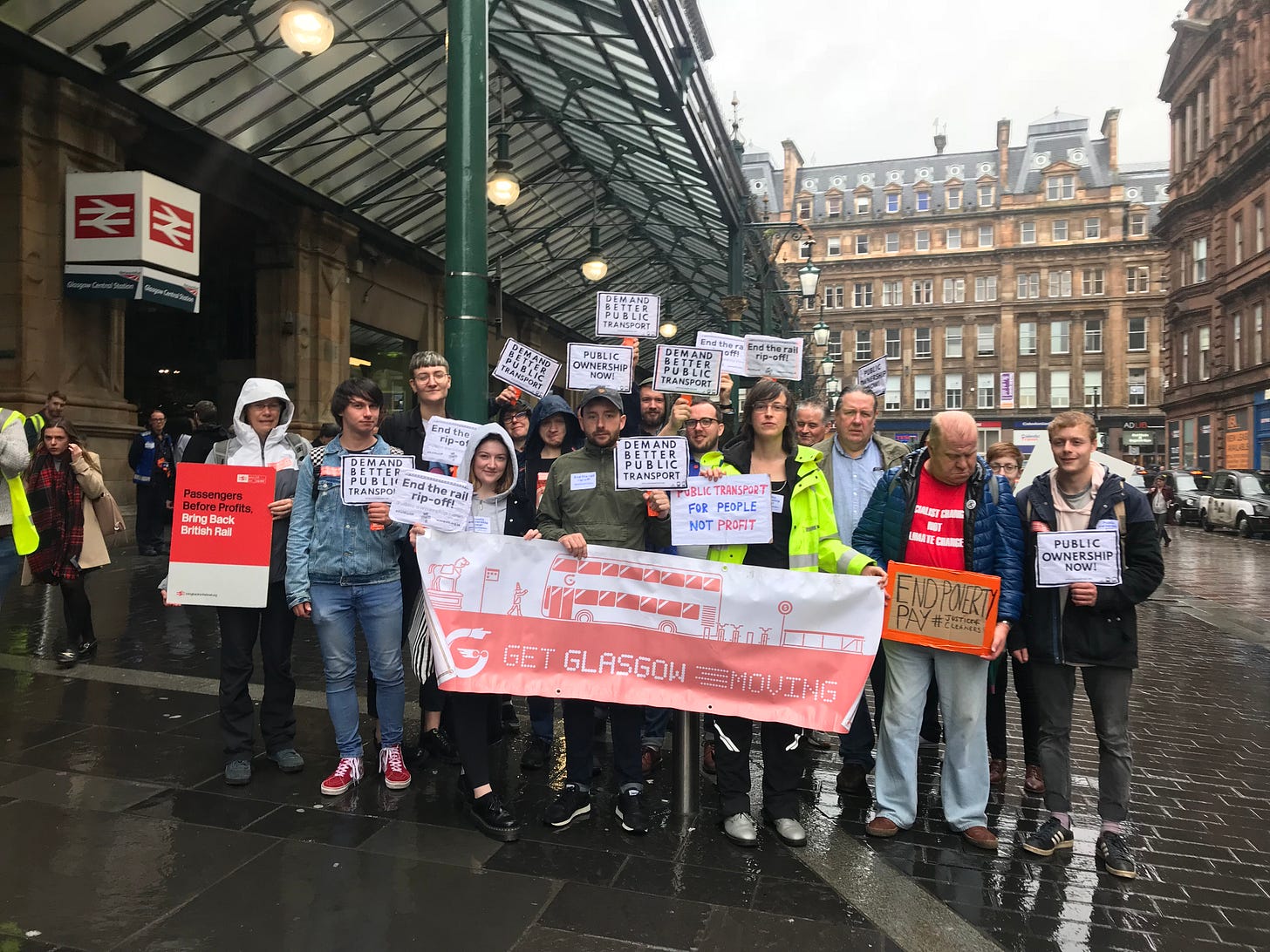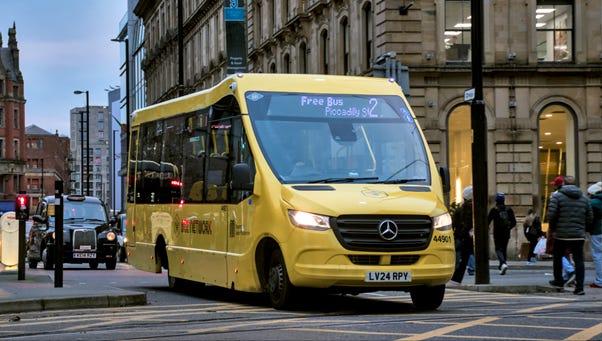A Just Transition or Just Transitioning the Problem?
Discussing the Scottish Government’s Draft Just Transition plan, is it really a “Just Transition” or are they “Just Transitioning” the problem down the road?
The Scottish Government are currently consulting on their Draft Just Transition Plan for Transport.
The draft contains plans for franchising the bus networks across Scotland so that more people can access public transport that can be more easily connected with other modes of transport.
It explains how an integrated ticketing system could be used so people are not penalised for requiring multiple modes on their journey and how the easiest and most cost-effective way to administer all of this is under public ownership.
It outlines how publicly-owned operators running bus networks results in huge dividends which can be re-invested in rapidly de-carbonising the fleet and expanding the network to continually improve access and journey experience.
It discusses how leasing trains from rolling stock companies (ROSCOS) is a terribly inefficient model that results in profit leaking from the system rather being reinvested in infrastructure and staff.
It acknowledges that by closing ticket offices you risk leaving vulnerable groups unable to travel as they cannot access the help necessary to allow them to board. This would be a distinctly unjust transition.
It highlights how overreliance on private vehicles (even electric) will not be feasible for a Just Transition and so we must build a fully de-carbonised public transport network under a regulated, not-for-profit operating model to equitably achieve net zero.
It points out that domestic flights are one of the worst polluting travel habits and investment in high-speed rail would render UK domestic flights all but pointless.
If that got you excited, I’m sorry to disappoint, the Just Transition Plan does not, in fact, do any of these things.
A quote from the plan:
“The draft Plan is not intended to set out new, standalone policies.”
Despite the discussion paper released in 2023 saying:
“A draft will be published in late 2023/early 2024, providing a targeted action plan and route map outlining the key steps needed to deliver a fair transition in this sector.”
It is not so much a transition plan as a document that sets out what challenges the government are facing in trying to encourage an increase in public transport usage without making any wholesale changes to the current operating models.
The consultation is seeking people’s views on just what it is they should actually be doing. The Just Transition plan is not providing a blueprint for how to create an equitable and sustainable transport network but instead they are “just transitioning” the problem back onto the individual to change their behaviours or provide the government with the solutions.
To further underline the point that the government are attempting to absolve themselves of responsibility here, they highlight community initiatives such as Glenfarg Community Bus. This community bus was set-up by the local community council as a means to promote social and recreation activities but had to step in when the only local bus route was pulled.
The plan uses passive language to discuss how the prior private operator had seen declining bus ridership but since the community takeover, ridership has gone up, the route extended and the frequency increased. They now operate five projects aimed at reducing reliance on private vehicles.
The Just Transition plan doesn’t quite connect the dots here that perhaps the privatised model of public transport is not, and has never been, fit for purpose for passengers. In any case, is the Scottish Government suggesting that we rely on the goodwill of our neighbours to run our local public transport services?
It does not mention bus franchising at all, despite evidence showing that it has reversed the decline in bus patronage elsewhere in the UK while also reducing passenger costs and increasing ridership on other modes.
Bus franchising, which Strathclyde Partnership for Transport (SPT) is currently pursuing as a way to improve the bus network in the Strathclyde region, has been the subject of repeated calls from SPT for government financial support.
It does not mention that free public transport initiatives elsewhere in Europe have resulted in people switching from car to bus travel when this was coupled with significant investment in expanding the network.
The most used form of public transport in Scotland is still the bus, even with the terrible standard of bus services in many areas of the country.
The main focus of the Just Transition plan is how they can get more people driving electric vehicles rather than petrol or diesel. They acknowledge that less than 50% of households on the lowest incomes have access to a car and that women, disabled people and ethnic minorities are much less likely to have access to a car. They reference the cost disparity in re-charging between those who have the space to charge their electric vehicles at home vs those who require on-street charging facilities.
If they acknowledge these things, how can moving people to electric vehicles be considered just? The people who currently don’t have access to a car still won’t.
This is before we consider that private vehicles have other negative environmental impacts such as increased social isolation from a car-dependent society and impacts on mental and physical health from noise pollution which disproportionately affect those who are already disadvantaged.
Additionally, the resources to replace each private vehicle with an electric vehicle are not carbon-neutral to produce nor are they found in Scotland. There is a risk with this approach that it “just transitions” the environmental impact onto other countries and communities. It’s not “just” to transfer our problems onto others.
In all, the Just Transition plan shies away from the fact that to address each and every one of the problems outlined in the report would require overhauling the private, profit-above-all model of our society. We have a once-in-a-generation opportunity to correct the mistakes of the past, let’s not waste it.
Find the Scottish Government’s Draft Transition plan and consultation here. Use the consultation to tell the Scottish Government that forcing everyone into private electric vehicles is not feasible and the scarce resources must be used more efficiently. We need to take back control of our public transport network so it can be run to serve people not profit.


